PRESS RELEASE
The Averted Disaster Award Announces Amrita Center for Wireless Networks & Applications as 2023 Winner
12 October 2023
Berlin, Germany, October 12, 2023 – The Averted Disaster Award (ADA) today named the Amrita Center for Wireless Networks and Applications as the winner of the 2023 ADA award for outstanding Disaster Risk Management (DRM) intervention. This prestigious recognition was announced at the 11th Global Dialogue Platform on Anticipatory Humanitarian Action, held in Berlin, during a three-day conference. Created in December 2021, the Averted Disaster Award is an annual competition that seeks to bring visibility to successful DRM programs and policies around the world.
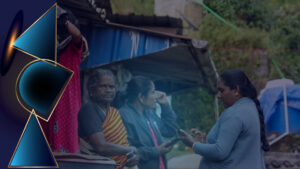
The Amrita Center for Wireless Networks and Applications
The Amrita Center for Wireless Networks and Applications earned the recognition for their work integrating landslide early warning technology and engaging communities for emergency preparedness and resilience in the Himalayas & Western Ghats regions of India. The organization has effectively predicted landslides and saved lives through their communication and emergency training within affected communities. The Amrita Center deployed the world’s first wireless sensor network for landslide monitoring and early warning in Munnar, Western Ghats, and Sikkim, Himalayas. Amrita developed a strategy predicated on bridging the gap between technology and impacted communities. Scientists worked with community members to understand the challenges of living in landslide prone areas and collaborated and co-designed solutions with them. The community members hold social responsibility and actively participate in taking steps for monitoring and reacting when landslide dangers are imminent. The collaborative approach resulted in better technology that protects communities and saves lives. While the number of landslides in the region has increased in recent years, countless lives have been saved as a result of their early warnings and community engagement.
David Lallemant, co-founder of the ADA and an Assistant Professor at Nanyang Technological University, expressed, “The Averted Disaster Award’s objective is to bring attention to effective risk reduction interventions that often go unnoticed. India, one of the world’s most disaster-prone countries, faces a significant landslide threat in areas like Munnar and its surroundings. With the Averted Disaster Award, our aim is to illuminate impactful initiatives such as this one, facilitating their replication, adaptation, and scaling in communities that require them.”
Shanna McClain, Disasters Program Manager at NASA, ADA Selection Committee Member and host of the award ceremony said, “Amrita’s collaborative approach bringing together scientists and the community is an example of best practice in developing effective disaster risk technology.” McClain added, “When at-risk communities are engaged as implementing partners from the outset, they are more likely to follow emergency guidance and develop long-term community resilience.”

The award ceremony featured the premier of a short documentary film titled “Living Without Fear”, which highlights the achievements of the award-winning organization. The documentary can be viewed by clicking on the following link.
The ADA also announced today the Runner-up recipient of the 2023 Averted Disaster Award as well as two additional recognitions. The ADA named the Aga Khan Agency for Habitat Pakistan as the 2023 ADA Runner-up in recognition of their Winter Preparedness Program, a community-based initiative focused on avalanche monitoring and risk reduction in the mountainous regions of Gilgit-Baltistan and Chitral. Addressing the acute lack of weather forecasting systems in these areas, AKAH has established community-based weather monitoring posts (WMP) to monitor the risk. The Winter Preparedness Programme combines technology-driven data with community-led organization to effectively monitor the potential threats of snow avalanches during the winter season. When predefined thresholds are reached, volunteers spring into action to disseminate critical information, facilitating the safe evacuation of at-risk populations and ultimately saving lives.
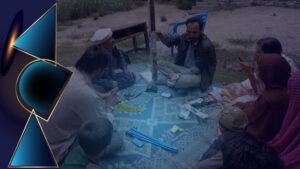
Aga Khan Agency for Habitat
Additionally, the ADA presented Special Recognition for Disaster Risk Communication and Diplomacy to two outstanding organizations. BBC Media Action received this accolade for their East Africa Weather Wise program, a media and communication initiative dedicated to climate action, with a specific focus on aiding drought-affected communities in Kenya. In East Africa, BBC Media Action collaborates closely with local broadcasters and climate scientists to build relationships and enhance weather and climate services. Amidst devastating drought conditions that have severely affected pastoralist herds and left 3.5 million people in dire need of food, families and communities in the three most affected counties of Kenya have reported that strengthened radio programming has been instrumental in their ability to survive and adapt. This has included initiatives such as rainwater harvesting, improved livestock management, and other livelihood adaptations.
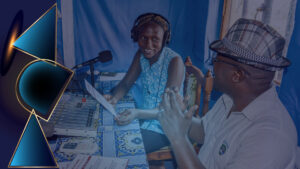
BBC Media Action
Furthermore, the ADA acknowledged Prepared International (PPI) for their significant contributions to Disaster Risk Diplomacy among Jordan, Israel, and Palestine, with a central goal of enhancing cross-border disaster preparedness and response coordination within the region. In light of recent developments, their endeavors have acquired even greater significance. This expert dialogue on emergency readiness and life-saving strategies involving Jordan, Israel, and Palestine seeks to fortify regional collaboration for a unified response, particularly in the event of a large-scale earthquake.
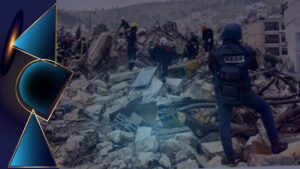
Prepared International (PPI)
To conclude the event, Shanna McClain has announced the official opening of the application period for the Averted Disaster Award 2024. The Averted Disaster Award welcomes submissions from individuals, project teams, and organizations of all sizes, across various regions and industries, whose effective DRM (Disaster Risk Management) interventions have gone unnoticed due to their success. The nominator does not need to have been directly involved in the intervention. The submission deadline is January 12, 2024.
About the ADA:
The Averted Disaster Award recognizes proactive interventions implemented around the world that help ensure that communities continue to function, thrive, and recover quickly in the face of disaster risk. The Averted Disaster Award is an initiative of the Understanding Risk community and is supported by the Global Facility for Disaster Reduction and Recovery (GFDRR).
For more information concerning the ADA, contact info@averteddisasteraward.org
About the 11th Global Dialogue Platforms on Anticipatory Humanitarian Action:
The 2023 Global Dialogue Platform, held both in Berlin and online from October 10 to 12, played host to various significant events. Among them was the announcement ceremony for the Averted Disaster Award. Furthermore, the platform featured a series of strategic workshops designed to delve into the ways anticipatory action can contribute to and play a pivotal role in advancing global initiatives aimed at safeguarding people from the escalating hazards they face. These initiatives encompass the UN’s Early Warning for All (EW4All) program, as well as the efforts of the G7 and V20 under the Global Shield initiative. Eminent experts, practitioners, and high-ranking government representatives actively participated in these workshops, enriching discussions and collaborating with attendees to shape the resulting recommendations.
Aligned with the Anticipation Hub’s overarching strategy, the Global Dialogue Platforms adopt a people-centered approach to foster collective ownership of the anticipatory action process. These events draw upon a wealth of knowledge derived from diverse sources, spanning the realms of science, policy, and practical experience in the field of anticipatory action.
The Global Dialogue Platform is proudly hosted by the Anticipation Hub, a collaborative venture between the German Red Cross, the International Federation of Red Cross and Red Crescent Societies (IFRC), and the Red Cross Red Crescent Climate Centre. The platform’s organization is a joint effort involving key partners, including the Food and Agriculture Organization of the United Nations (FAO), the World Food Programme (WFP), Start Network, and the United Nations Office for the Coordination of Humanitarian Affairs (OCHA), with valuable support from the German Federal Foreign Office.
Averted Disaster Award 2023 – Winner
Amrita Center for Wireless Networks & Applications
For their intervention
“Building a Resilient Community by Integrating Technology and Social Science for Disaster Early Warning”
In recent years, India has been grappling with an escalating frequency of natural disasters, and among these, landslides have emerged as a particularly impactful threat. The Himalayan and Western Ghats regions in the country are especially vulnerable to landslides, leading to numerous casualties each year. To address this pressing challenge, Amrita Vishwa Vidyapeetham, India, has pioneered a groundbreaking solution – AI-enabled Internet of Things (IoT) Landslide Early Warning System (Amrita-LEWS).
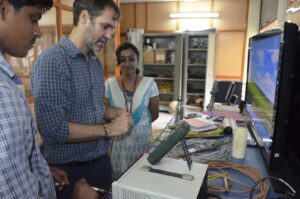
Landslides triggered by factors such as extreme rainfall, improper drainage, and human development activities have wreaked havoc on regions like Munnar in the southern state of Kerala. For years 2018 through 2022, the Munnar community has faced perilous situations during the monsoon season, jeopardizing their lives, livelihoods, and security. To combat this, Amrita Vishwa Vidyapeetham introduced the Amrita-LEWS, an innovative system consisting of more than 150 sensors strategically placed underground, ranging from the surface level to bedrock.
This system is a sophisticated amalgamation of AI, IoT, and data analytics. It continuously monitors an array of parameters – from rainfall, seismic actions, and moisture levels to pore pressure, vibrations, and inclinations. The collected data is then analyzed to predict the onset of landslides with impressive accuracy.
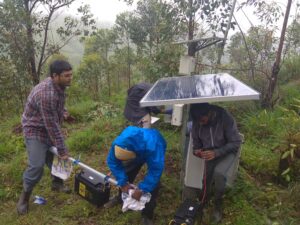
Notably, the system incorporates AI and machine learning techniques to forecast landslides with a lead time of 3 to 24 hours, thus providing a crucial window for evacuation and disaster preparedness.
What sets the Amrita-LEWS apart is its ability to monitor various types of parameters and offer multi-scale warnings for different types of landslides. By seamlessly integrating meteorological, geological, and hydrological data through an IoT framework, the system delivers timely and reliable early warnings. The technology has been rigorously tested, validated, and refined through real-world deployments, ensuring its effectiveness.
A more advanced iteration of this system has been operational in Chandmari, Sikkim, since 2018. Covering over 32 hectares, this extended version employs an array of geotechnical and geophysical sensors to monitor factors like moisture levels, pore water pressure, ground vibrations, tilting, and strain. Weather stations equipped with environmental sensors keep track of rainfall, temperature, humidity, solar radiation, wind speed, and atmospheric pressure. The real-time data from these sensors is transmitted to Amrita’s Control Center, where it undergoes detailed analysis to generate accurate predictions and facilitate informed decision-making.
This technological marvel hasn’t just remained confined to laboratories – it has proven its mettle in the field. Amrita’s IoT system has successfully issued early warnings for landslides on numerous occasions, including critical instances like July 2009, August 2011, August 2013, and more recently, in July and August of 2018, 2019, 2020, 2021, 2022 and 2023. These timely alerts have played a pivotal role in safeguarding the lives and properties of the Munnar community.
Two striking examples highlight the system’s effectiveness: In August 2020 and August 2022, regional landslide warnings were issued for the Western Ghats, specifically Munnar. In both instances, devastating landslides occurred within a mere 20 kilometers of the deployment sites shortly after the warnings. These incidents stand as testament to the reliability and accuracy of Amrita’s early warning system.
Yet, Amrita’s commitment to disaster management goes beyond technology. The institution is deeply engaged in fostering community resilience through comprehensive programs. Initiatives like the Landslide Tracker, a collaborative mobile app, and the Amrita Kripa app for real-time disaster management underscore their dedication to involving the community. Additionally, Social Media Mining Platform focuses on harnessing social media data for swift and inclusive multi-hazard event detection, aiding rescue and relief operations.
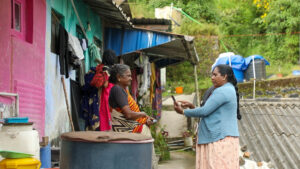
By intertwining technological prowess with community empowerment, Amrita Vishwa Vidyapeetham is revolutionizing disaster preparedness and mitigation. Through a decade-long journey of research, development, deployment, and operation, their AI- and IoT-driven systems have proven instrumental in not just saving lives, but also making communities self-reliant and resilient in the face of natural disasters. The experiences gleaned from real-world deployments in both the Western Ghats and the North-east Himalayas stand as a testament to the transformative power of technology when combined with a vision for societal betterment.
Congratulations Amrita Center for Wireless Networks & Applications
For more information please visit the Amrita website.